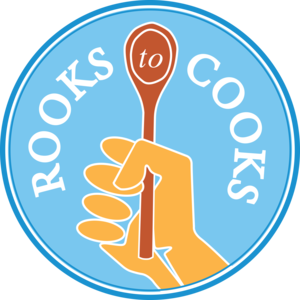Since the start of the pandemic, we have found ourselves online a lot more than usual. Chef Shai recently spoke with a Naturopathic Doctor, Dr. Marissa Canning, on the topic of how blue light from screens can affect all our health, but especially the health of our children. We thank Dr. Canning for her valuable and helpful suggestions, and we invite you to read on and visit her websites for more information on services and products. Dr. Canning is Co-Owner of Lakeside Naturopathic Clinic and NaturoAcademy.
While online learning, after-school cooking classes and our virtual culinary camps have played a huge role in keeping us all connected during this past year, we have become increasingly aware of the effects that added screen time has had on our children’s health.
Screen time is at an all-time high for most kids which has a number of consequences, many of which are related to excessive blue light exposure. This is a concern in all of us (kids and adults alike!), but blue light affects children more than it affects adults. This is due to the fact that the crystalline lens of the eye is not fully developed yet allowing more light to penetrate through. Children’s pupils are also larger than adults, meaning they are able to take in more harmful blue light than adults do.
Fear not! We have partnered with Dr. Marissa Canning, ND from NaturoAcademy to share with the Rooks to Cooks Community some simple strategies to help protect your little ones and help to reduce their exposure, and a discount code for you to protect your family with NaturoBlocks, Canada’s best Blue Blocking Glasses!
How Blue Light Affects Kids:
Sleep Disruption
Exposure to blue light (present in screens and artificial lighting) in the evenings prevents the body from releasing melatonin, the hormone required for proper sleep and repair.
Learning Difficulties
Blue light can contribute to decreased productivity, attention, energy, poor concentration, and sore eyes. All of these symptoms make virtual learning a very difficult task!
Mental Health Concerns
Not only is blue light addictive, but it also alters our “feel-good” neurotransmitter called Dopamine, which is involved in pleasure and reward centres of our brain. It may be hard to believe, but blue light can have similar effects on our brain to gambling, sugar, and even certain recreational drugs, giving us a quick hit of feeling good but ultimately leading to dependency and craving for more. Children are especially susceptible to this addiction and overuse of technology can lead to anti-social behaviour, temper tantrums, and attention disorders. It’s important to minimize blue light exposure especially during the crucial years of brain development.
Headaches and Migraines
Screens (computer, iPad, phones, TVs, video games) and artificial lighting are common triggers for headaches in children. This may be due to the fact that excessive blue light creates reactive oxygen species leading to cellular damage (especially in the eye). This happens in all of us, but little ones are particularly sensitive to the effects!
Increased Appetite for Sugary Foods
Have you noticed that your kid is reaching for the cookie jar more often since switching to virtual learning? That is because blue light boosts the body’s primary stress hormone cortisol, which leads to blood sugar instability. With long term exposure to blue light this can lead to insulin resistance, leptin resistance, and changes in neurotransmitter function (especially dopamine), which can all cause sugar and carbohydrate cravings.
How to Protect Your Kids from Blue Light:
- Frequent Sun Breaks
Whenever your kids have breaks, get outside!
- Use NaturoBlocks Blue Blocking Glasses during R2C Virtual Cooking Classes
During R2C Virtual Cooking Classes, wearing blue-blocking glasses can have a huge impact on reducing their exposure to blue light. NaturoBlocks Daytime Screen Glasses block out 88% of harmful blue light while still allowing some blue which is important in small quantities during the day. Most blue-blocking glasses do NOT block the problematic wavelength of light (455nm) that is emitted from these devices so beware! Shop now (https://naturoacademy.com/shop/) or learn more about how our glasses work (https://naturoacademy.com/learn/).
SPECIAL OFFER: Be sure to use discount code: ‘ROOKSWEAR’ at checkout for 15% off!
- Use Blue Light Filtering Software
If you have a newer Apple product (MacBook, iPhone or iPad), be sure to turn on NightShift and set it so that it stays on all day. Android users can use Twilight App.
- Avoid Blue Light at Night
As discussed above, blue light exposure at night decreases sleep quality which has massive consequences for our overall health. This is especially important for kids because proper physical growth, development and memory consolidation (learning) all require proper sleep. After the sun sets, avoid the use of screens (especially a few hours before bedtime) and use dim lighting such as candles, salt lamps, or red LED bulbs. An alternative is to use NaturoBlocks Blue Blocking Glasses which block 88% of harmful blue light in order to maximize sleep quality.
Parents, you have taken on the impossible during this past year. We see you protecting your kids at every turn of this pandemic, now trying to help your little ones navigate this increasingly virtual world. You’re doing a great job! Rooks to Cooks and NaturoAcademy hopes this helps to ease some of the stress!

